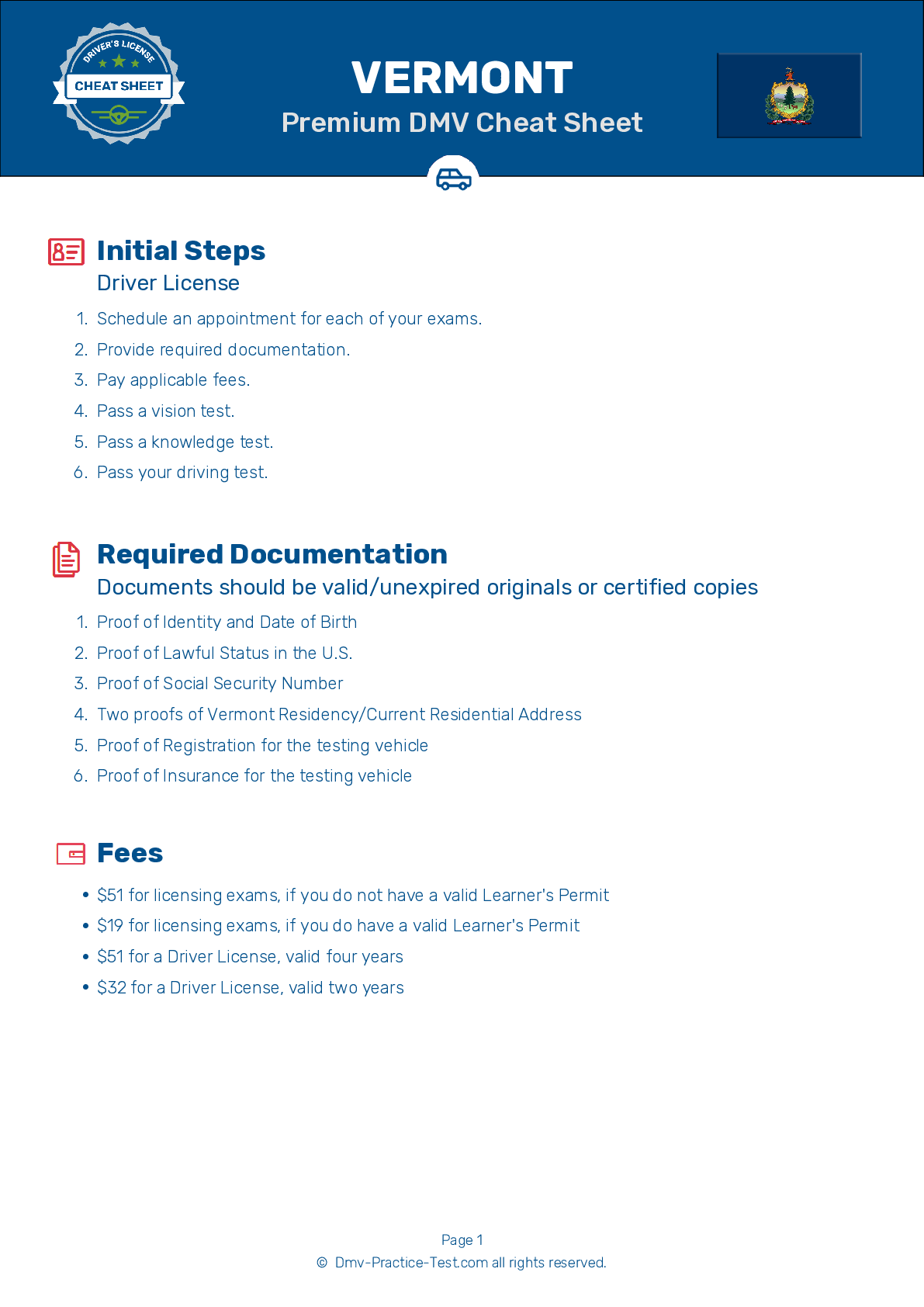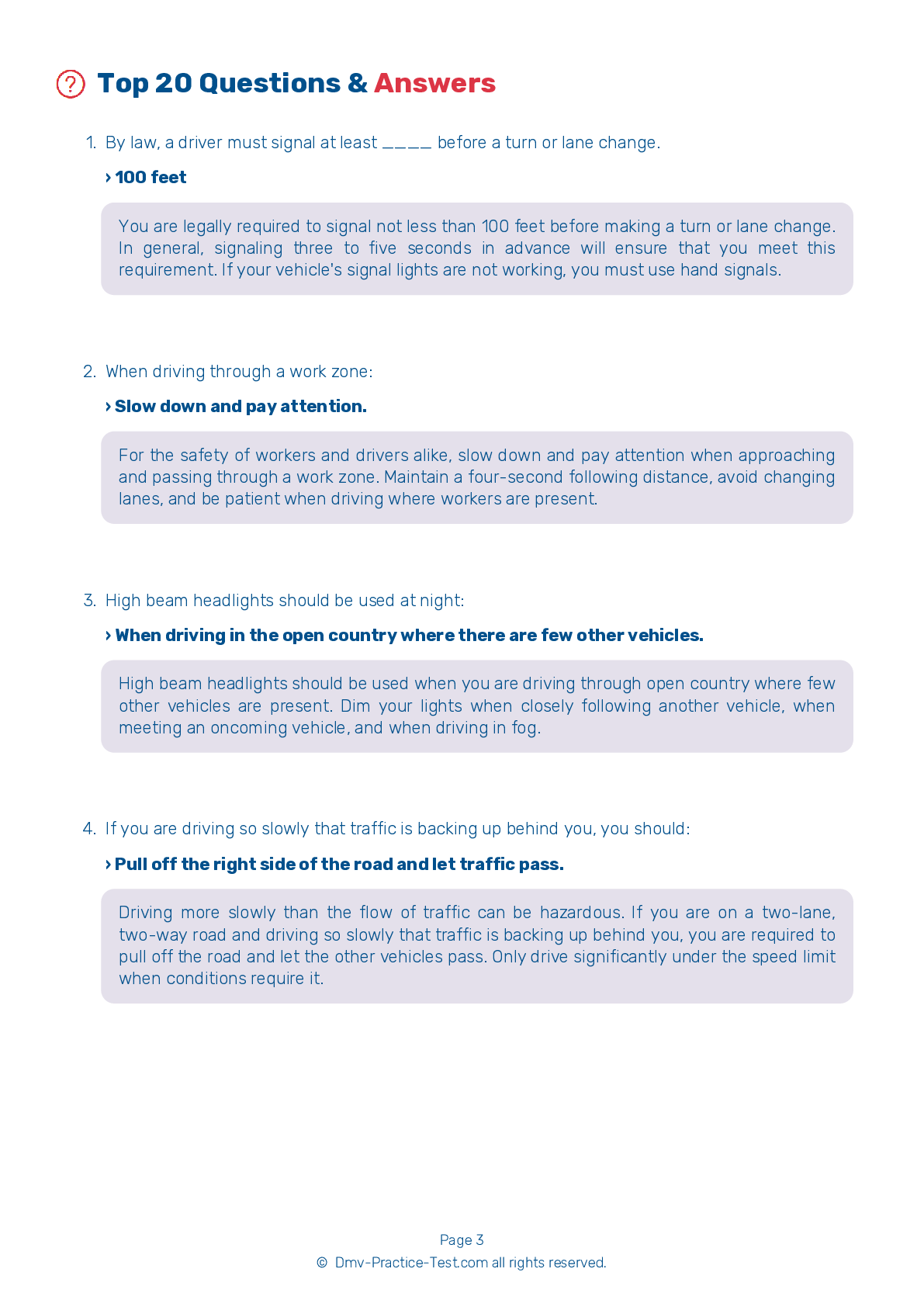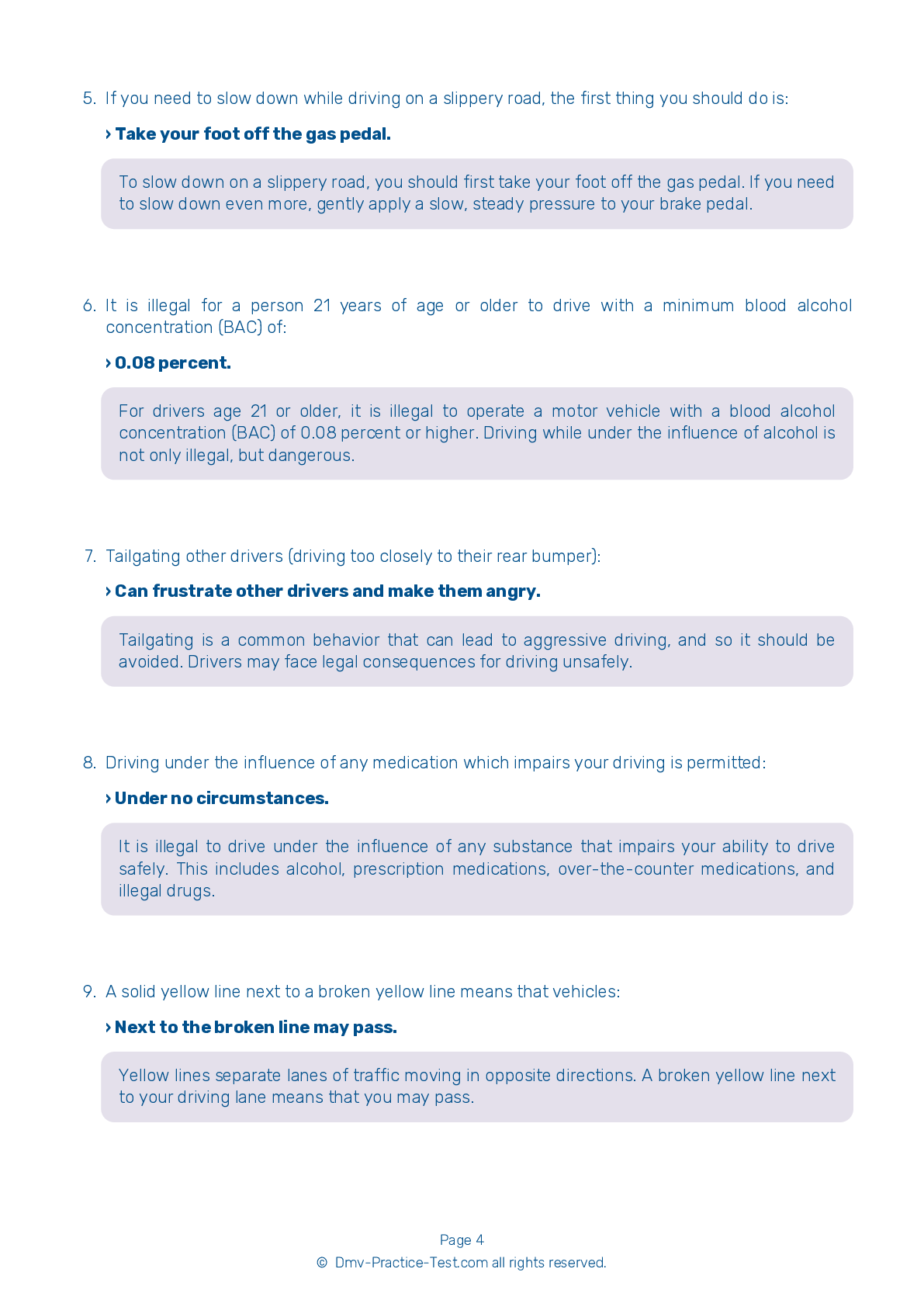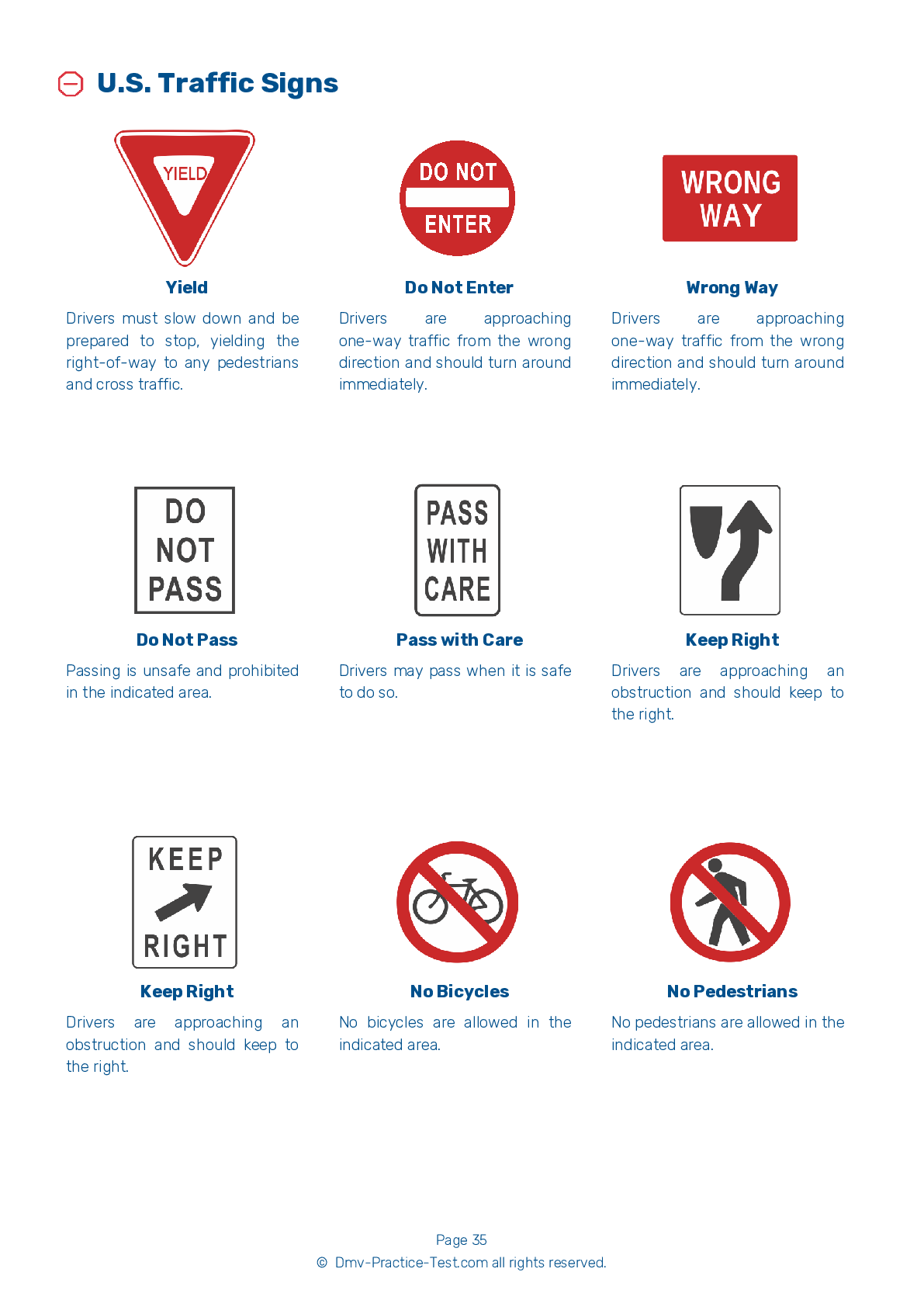FREE Vermont DMV Practice Test #11 Page 3 of 3
The Vermont DMV practise examinations have been updated for January 2026. It includes questions based on the Vermont Driver Handbook's most significant traffic signals and legislation for 2026. Use actual questions that are very similar (often identical!) to the DMV driving permit test and driver's licence exam to study for the DMV driving permit test and driver's licence exam.
On the practise exam, each question gets a tip and explanation to help you remember the concepts. The written component of the official Vermont DMV test will include questions about traffic rules, traffic signs, and driving statutes, as well as knowledge from the Driver Handbook.
To obtain a passing grade, you must correctly answer 16 of the 20 questions. Use the practise exam provided by the Vermont Department of Motor Vehicles to help you prepare for your instruction permit or driver's licence.
The DMV exam is available in several languages.
Using any kind of testing assistance will result in an automatic fail, and the DMV may take additional action against your driver's licence, so stay away from it.
14 . This road sign means:
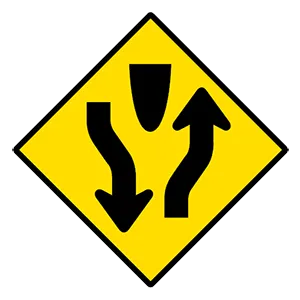
This sign indicates that a divided highway begins ahead. The road splits into two one-way roadways separated by a median or divider. You must keep to the right.
15 . This sign means:
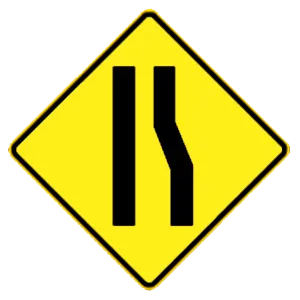
Warning signs are usually diamond-shaped with black markings on a yellow background. They alert drivers to upcoming hazards. This sign warns drivers that the right lane is ending or that the road is narrowing ahead.
16 . When a vehicle with an Anti-Lock Braking System starts to lose traction on a slippery road, drivers should:
If their vehicle loses traction on a slippery road, a driver with an Anti-Lock Braking System (ABS) needs to press down hard on the brake pedal, hold it, and steer out of danger. In an emergency situation, the ABS automatically pumps the brakes at a faster rate than the driver could. Removing steady pressure from the brake pedal or pumping the brakes will disengage the ABS.
17 . As alcohol builds up in your blood, it:
As alcohol builds up in your system, it will slow your reactions, make you feel more confident, and cause you to make more errors.
18 . When changing lanes, you should:
Other cars and motorcycles are often hidden in a vehicle’s blind spot, so be sure to glance over your shoulder before you begin a lane change. Begin signaling 100 feet before changing lanes or turning in a residential area. Signal five seconds in advance when changing lanes on a freeway.
19 . At a school crossing sign, you should:
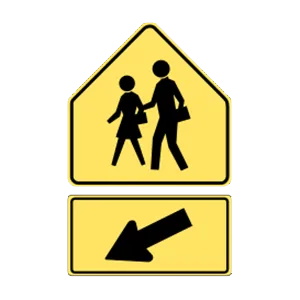
You must always yield to pedestrians who are in or about to enter a crosswalk. Be alert to pedestrians when driving across intersections or turning.
20 . This sign means:
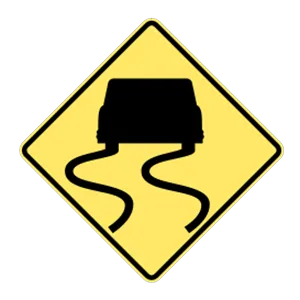
This sign warns that the road is slippery when wet.
See the exact questions that will be on the 2026 Vermont DMV exam.
99.2% of people who use the cheat sheet pass the FIRST TIME
LT gives us an insight on how the cheat sheet provided her with all the study questions she needed before taking her test.
Joe initially studied with the handbook and failed his test, he eventually found us online, studied and pass his test the first time around.
2026 Vermont | Frequently Asked Questions
1. Not checking mirrors and blind spots before changing lanes or turning.
2. Speeding or driving too slowly for the conditions or posted speed limit.
3. Not coming to a complete stop at stop signs or red lights.
4. Incorrect signalling or not signalling at all.
5. Poor parking, especially parallel parking.
Remember, practice makes perfect, so take time to hone your skills.
